Since its inception in 1995, the Research Opportunities Program (ROP) has given second- and third-year Arts & Science students the chance to step outside the classroom and earn hands-on research experience by joining their instructor’s project, while earning course credit.
Earlier this month, at the semi-annual ROP poster fair, more than 100 students took advantage of the opportunity to explain their research process and findings to their professors, families, friends and other students.
Nineteen academic units were represented, reflecting the breadth and depth of Arts & Science.
The students’ projects featured out-of-the-box solutions to tackle everyday challenges, dug deep into the past to pave a path to a brighter future, and investigated a diverse set of issues from political and psychological perspectives.
“The ROP poster fair was an excellent opportunity to showcase the exciting research that ROP students have been working on, and celebrate their academic achievements,” says Kunyao Kuang, ROP fair organizer and experiential learning officer in the Faculty of Arts & Science.
“Most attendees are undergraduate students interested in participating in research, and the fair creates a space for them to network, share research information, learn from each other’s experience, and explore potential research opportunities,” says Kuang.
Meet a few of the students who participated below:
Exploring the relationship between attention and word reading in elementary French immersion students
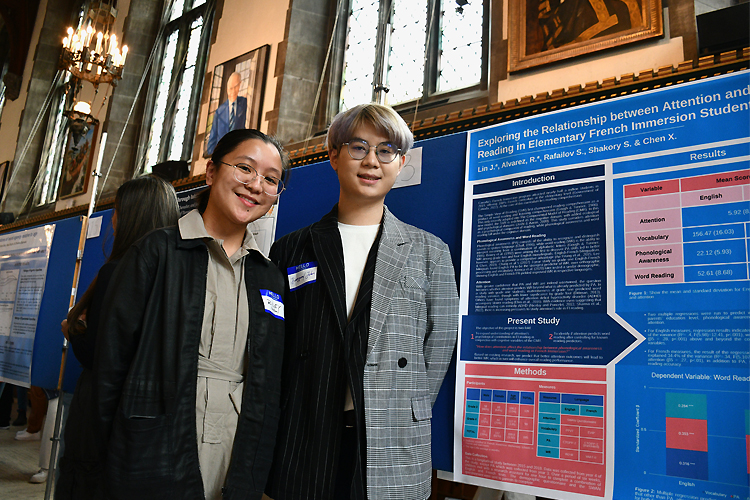
Jiangyuan Lin, a third-year sociology and economics student at Victoria College, and Riley Alvarez, a second-year laboratory medicine and pathobiology student at Trinity College, worked to understand the effect of attention on the relationship between phonological awareness — the ability to recognize and distinguish sounds in spoken language, and word reading in French immersion.
The results indicate that there is a strong link between better attention and reading comprehension that could apply to French immersion elementary students. This research will ideally inform better teaching and learning practices in French immersion programs across elementary schools.
Cell proliferation of human lung organoids on synthetic lung scaffolds
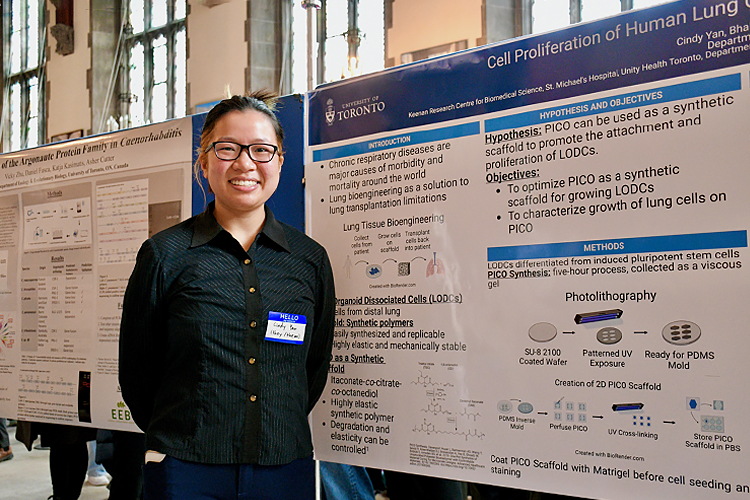
Cindy Yan, a third-year physiology and cell and molecular biology student at Innis College, is turning to lung bioengineering as a solution to chronic respiratory diseases. This has been proposed as a safer alternative to organ transplantation, which is currently the only solution to these conditions. In this project, Yan used synthetic polymers as a base to grow and retain lung organoid disassociated cells, which could eventually be transplanted into live organisms that require them.
Yan’s research found that the lung cells successfully attached and proliferated in the study, but further research is needed. If successful, this solution could reduce the need for lung transplants to cure certain lung conditions.
Scarcity of empathy: the influence of political orientation and competitive jungle worldview on victim blaming
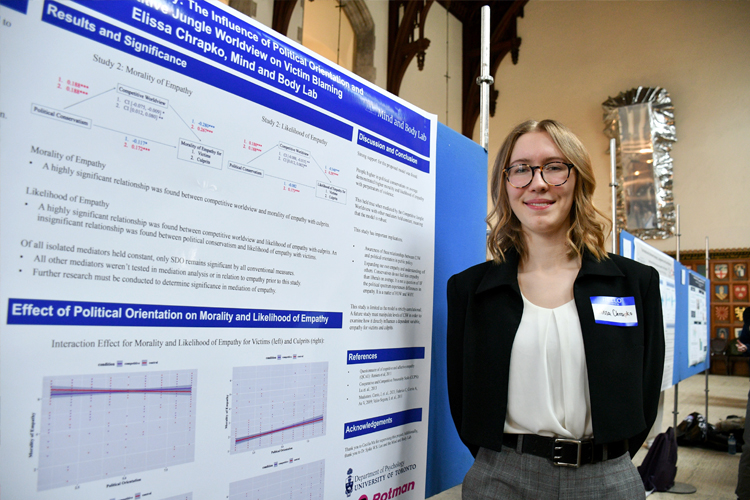
Elissa Chrapko, a second-year public policy and economics student with a focus on data analytics from Victoria College, is investigating the effect of political orientation on morality and the likelihood of empathy, especially in the context of victim blaming. Preliminary study results found that people higher in political conservatism on average demonstrated higher morality and likelihood of empathizing with perpetrators of violence. This project sparks the conversation about how and why people on different ends of the political spectrum experience differences in empathy.
An archival analysis of Trinity College’s Land History
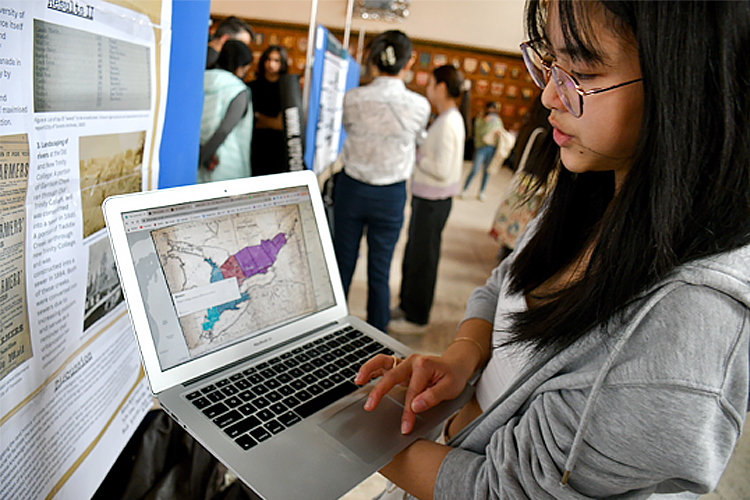
Sarah Chen, a third-year environmental geography student at University College, does a deep dive into the history of the land on which Trinity College was built, in hopes of inspiring sustainable development in the future. Through extensive literature review, Chen found that land endowments granted by the British Crown, agriculture, and landscaping of rivers all played a role in the construction of the University of Toronto and Trinity College. As part of this project, an interactive StoryMaps website will be published in April, and it will be a living document to which other students can also contribute in the years to come.
Trust in Science: Conceptualizing Public Trust in Light of the COVID-19 Pandemic
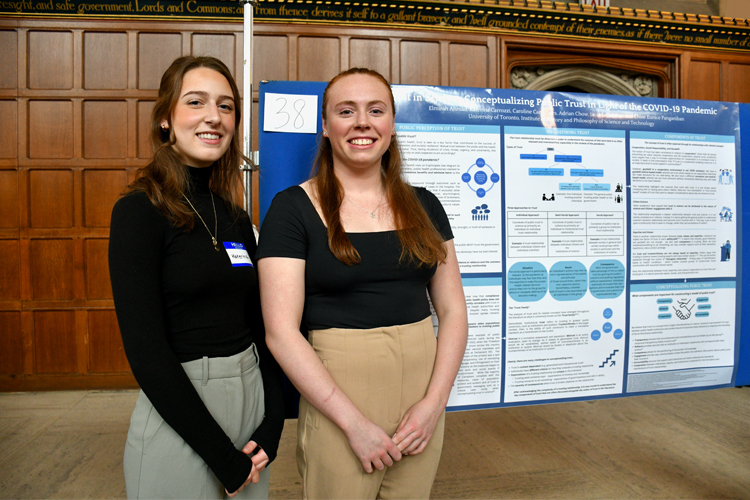
Katerina Carozzi and Caroline Carruthers look at the value of public trust in the context of the COVID-19 pandemic. Carozzi is a second-year biology and immunology & physiology student from Victoria College, and Carruthers is a fourth-year physiology, health & disease and immunology student from Trinity College.
In this project, they make an important distinction between trust and compliance, and conceptualize public trust by breaking down the components needed to build it, making this research especially important for policymakers and politicians as they continue to navigate through the pandemic. It serves as an important guide on how to establish trust when navigating through future crises.

